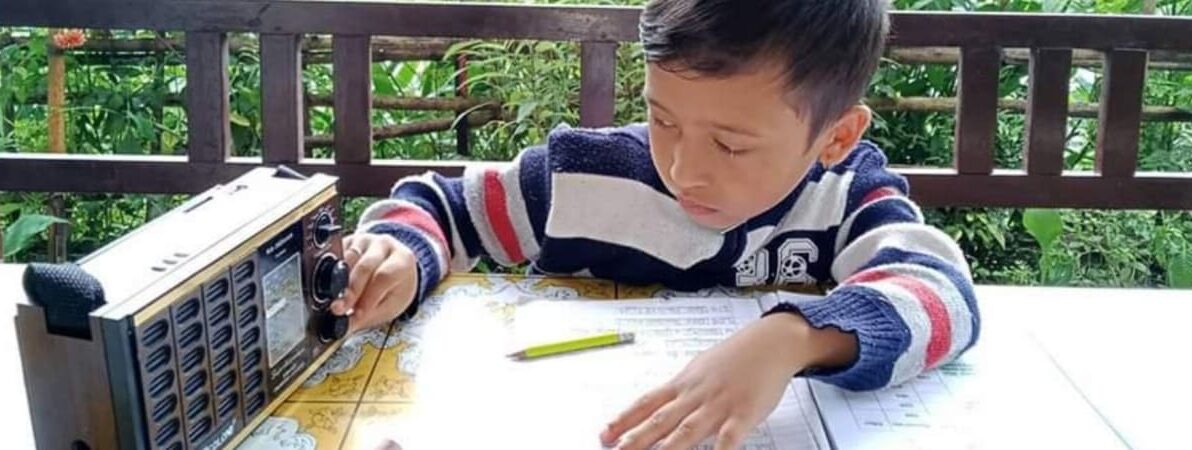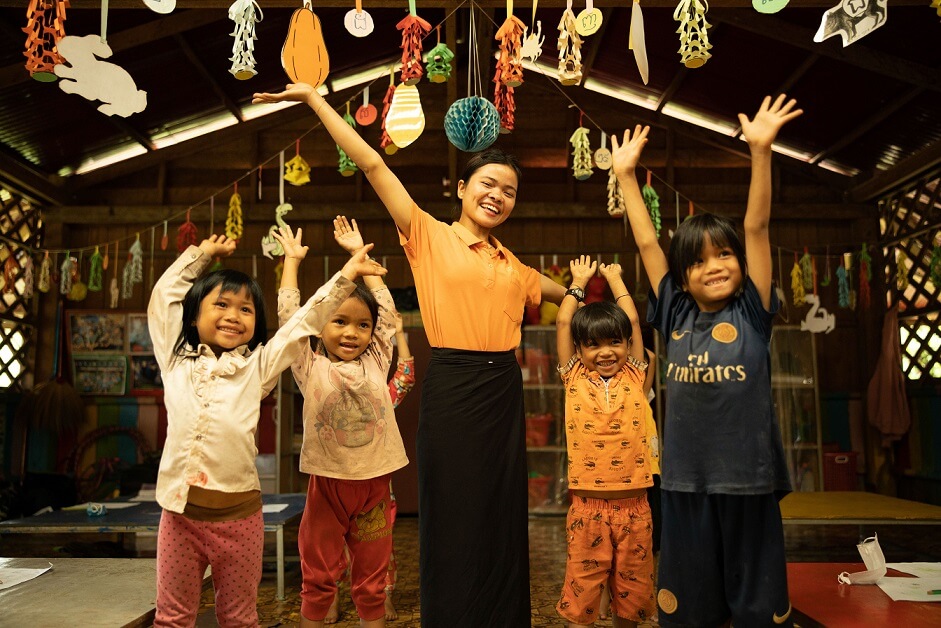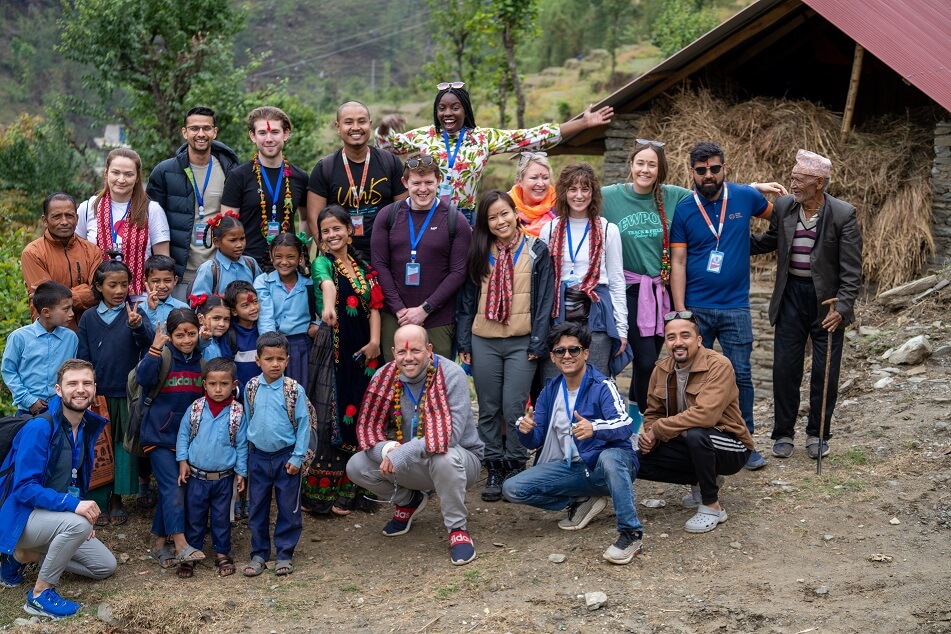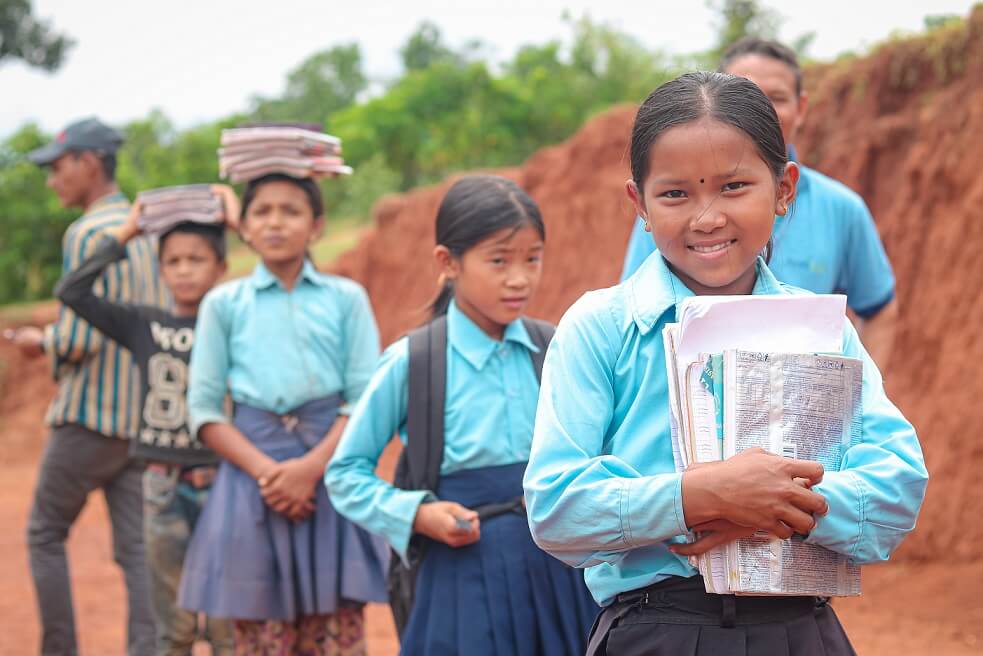OUR RADIO EDUCATION IMPACT ASSESSMENT

August 3, 2020
United World Schools
2 mins
As schools shut around the world, many turned to the internet. Millions of students transitioned from sitting in classrooms to Zoom-ing into school. But what about those children who have no access to internet?
In Nepal, we know fewer than half of households have access to the internet in the communities we serve. We had to innovate fast to ensure that covid-19 would not widen already existing inequity.
We turned to a medium many might consider old-fashioned: radio. Over 85% of households within the communities we work with have a radio. So we began teaching a daily lesson over a handful of local radio stations, with prompts for further homework.
Within weeks, 10,000 children were listening each day and more radio stations wanted to broadcast our work – we now work in collaboration with 10 local FM stations. An innovative idea turned into our major programmatic response to this unprecedented crisis.
In June 2020, we conducted a beneficiary survey to fully understand the impact of this programme.
WHAT WERE THE RESULTS?
In interviews with over 600 households in June, we learnt:
- Most children (about ¾) found the radio programme engaging and understood the content.
- Some younger children were struggling with the daily programme, so we moved to broadcast grade-specific lessons: 8 lessons a day with 30 minutes for each grade.
- Rather than broadcast during daytime to replicate school hours, we should broadcast in the morning and evening around parent’s working hours.
Radio lessons are laying the foundations for a successful school reopening. They mitigate learning loss, and sustain a routine of education in communities where the culture of learning is new and fragile.
Radio also complements our other strategies, with takeaway education programmes reaching the minority of children who do not have access to radio. We have a recovery plan in place to prevent drop out when schools reopen. Our Every Child Counts campaign makes our intent clear: our goal is for every child to return to school without exception.
The challenges ahead are grave. Nepal has been badly hit by covid-19. Many families, including some in the communities we serve, depend on income from work overseas that disappeared overnight and might never come back. Starvation is rising, suicide rates have never been higher and heavy monsoon rains are displacing thousands.
We must not let this crisis reduce our investment in education – in fact, it must spur us to redouble our commitment. Covid-19 has taken much; we cannot let it take our children’s futures too. Education must continue, now more than ever.
Get Involved

The future needs to change. You can change it
Join the movement
The world's greatest challenge requires the planet's greatest brands.
Become a brand partner
Got some spare change? Then you can change the future.
Give a philanthropic gift





